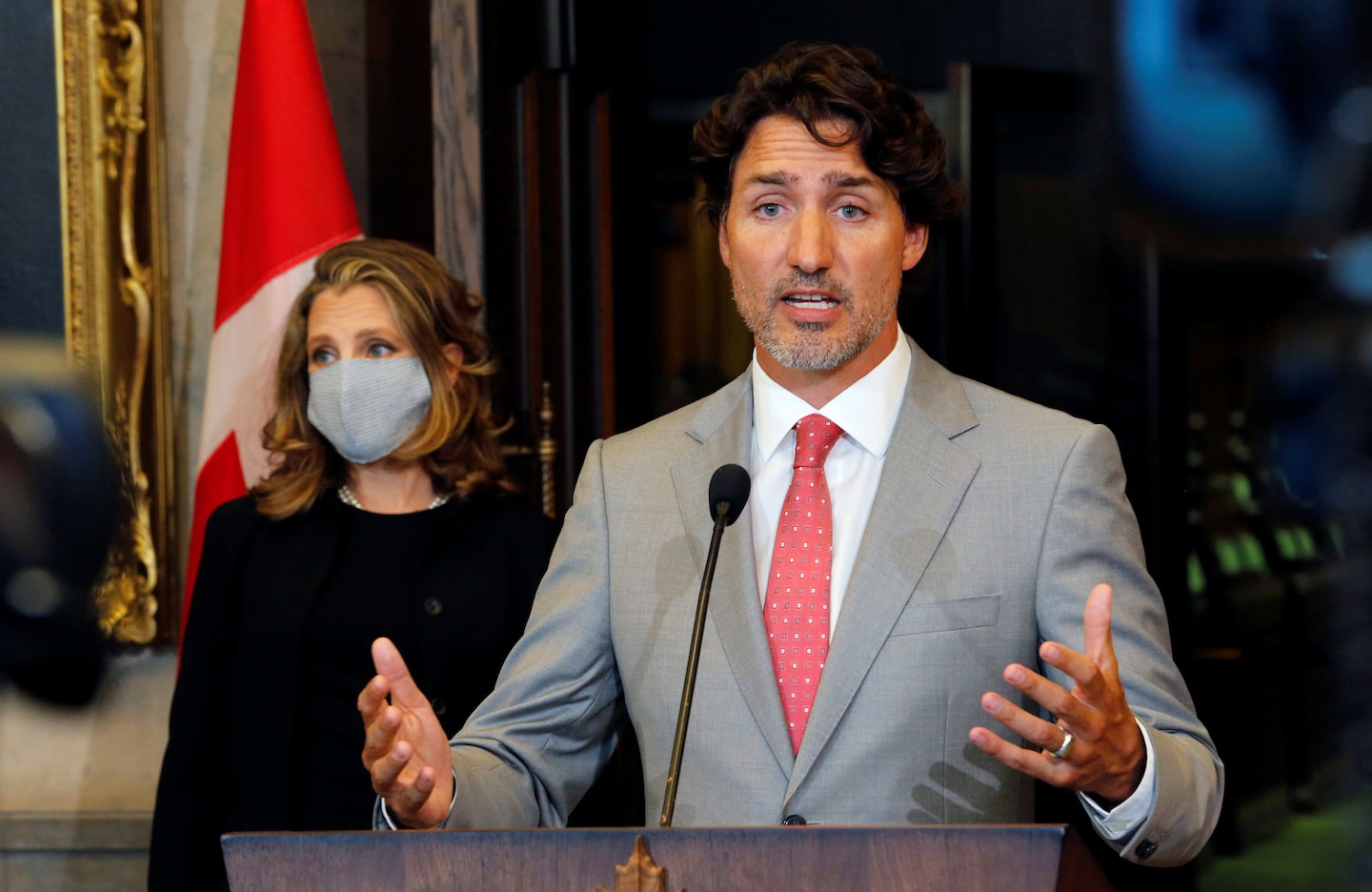Trudeau’s suspension of Parliament amid ethics controversy fuels cries of ‘coverup’

It ended Tuesday afternoon with a cabinet shuffle that saw the first woman in Canadian history appointed to Morneau’s old job and a surprise announcement from Prime Minister Justin Trudeau: He was suspending Parliament for more than five weeks.
Trudeau cast the suspension — or prorogation — of Parliament as necessary, saying his 2019 agenda had become outdated in a world reshaped by the pandemic. He promised to use the time to craft an “ambitious” post-pandemic recovery plan that would address the “fundamental gaps” revealed during the health crisis.
But some opposition parties weren’t buying Trudeau’s rationale and said the suspension had a more nefarious intent: To impinge on parliamentary probes into an ethics controversy engulfing his government.
“Justin Trudeau is walking out on Canadians in the middle of a major health and economic crisis in a disgusting attempt to make Canadians forget about his corruption,” declared Andrew Scheer, interim leader of the Conservative Party. He accused the prime minister of orchestrating a “coverup.”
Jagmeet Singh, leader of the New Democratic Party, also weighed in.
“Canadians shouldn’t be forced to pay the price for Mr. Trudeau’s scandals,” Singh said.
Several parliamentary committees have been investigating the government’s decision to award a contract to run a $690 million student grant program to WE Charity, which has close ties to Trudeau and Morneau.
The Toronto-based charity and its for-profit arm had paid Trudeau’s mother and brother more than $320,000 to appear and speak at its events from 2016 to 2020, and it covered more than $150,000 of their expenses. Trudeau’s wife is a WE Charity “ambassador.”
In testimony before one of the committees last month, Morneau said he had hours earlier cut a check to the charity, which had employed one of his daughters, for more than $30,000 in travel expenses incurred during two trips with the group in 2017.
Canada’s independent ethics watchdog is investigating Trudeau and Morneau over alleged breaches of conflict-of-interest laws. Both have apologized for failing to recuse themselves from the cabinet discussions on the agreement, which was canceled amid the outcry.
Morneau said that he resigned because he did not intend to run in the next election and that it was time for a new finance minister to chart the country’s long-term economic recovery. Opposition lawmakers charged that he was Trudeau’s sacrificial lamb and that his resignation was tied to the ethics controversy.
Prorogation allows the government to start a new session of Parliament with a “speech from the throne” outlining a fresh agenda. Lawmakers keep their seats during the suspension, but all parliamentary business stops. Bills are terminated and inquiries halted.
There have been controversial uses of the procedural tool. In 2008, Prime Minister Stephen Harper, Trudeau’s predecessor, prorogued Parliament for nearly two months to avoid a confidence vote he was likely to lose. Until Tuesday, Trudeau had not used the tool. He pledged in 2015 not to do so “to avoid difficult political circumstances.”
Under Trudeau’s plan, Parliament will be suspended until Sept. 23, two days after regular sittings were to resume, when there will be a new throne speech. He said he will force a confidence vote, which could trigger an election if the Liberals fail to win the support of at least one opposition party.
Daniel Béland, director of the Institute for the Study of Canada at McGill University, said Trudeau’s prorogation of Parliament is unlikely to be as controversial as Harper’s maneuver. But, he said, “the timing is political in nature” and the length of the suspension appears designed to thwart the probes.
Béland said Trudeau could have prorogued Parliament on Sept. 22, delivered a throne speech soon after and still sought a confidence vote, allowing the committees to work in the meantime.
Even Nate Erskine-Smith, a lawmaker from Trudeau’s Liberal Party, agreed.
In a tweet, Erskine-Smith said he supported the “idea of a reset” and a confidence vote on the government’s agenda, but “while it’s not the end of the world to punt committee inquiries for a few weeks, the better response would have been to prorogue in mid-Sept to avoid that happening.”
Nik Nanos, a pollster, said the WE Charity affair has dented support for the Liberals, who were flying high because of their handling of the pandemic. The question, he said, is whether the prorogation will make things worse or turn the page on the controversy.
“For average Canadians, ‘Does my mom or dad have covid-19?’ or ‘Will I have a job?’ are much more important than the parliamentary rules that have been used by the Trudeau government in the short term,” Nanos said.
Béland noted that the opposition was combing through newly released documents related to the contract on Wednesday, looking for any hint of impropriety.
Trudeau’s move “could backfire,” he said. “But that’s the political calculation.”






